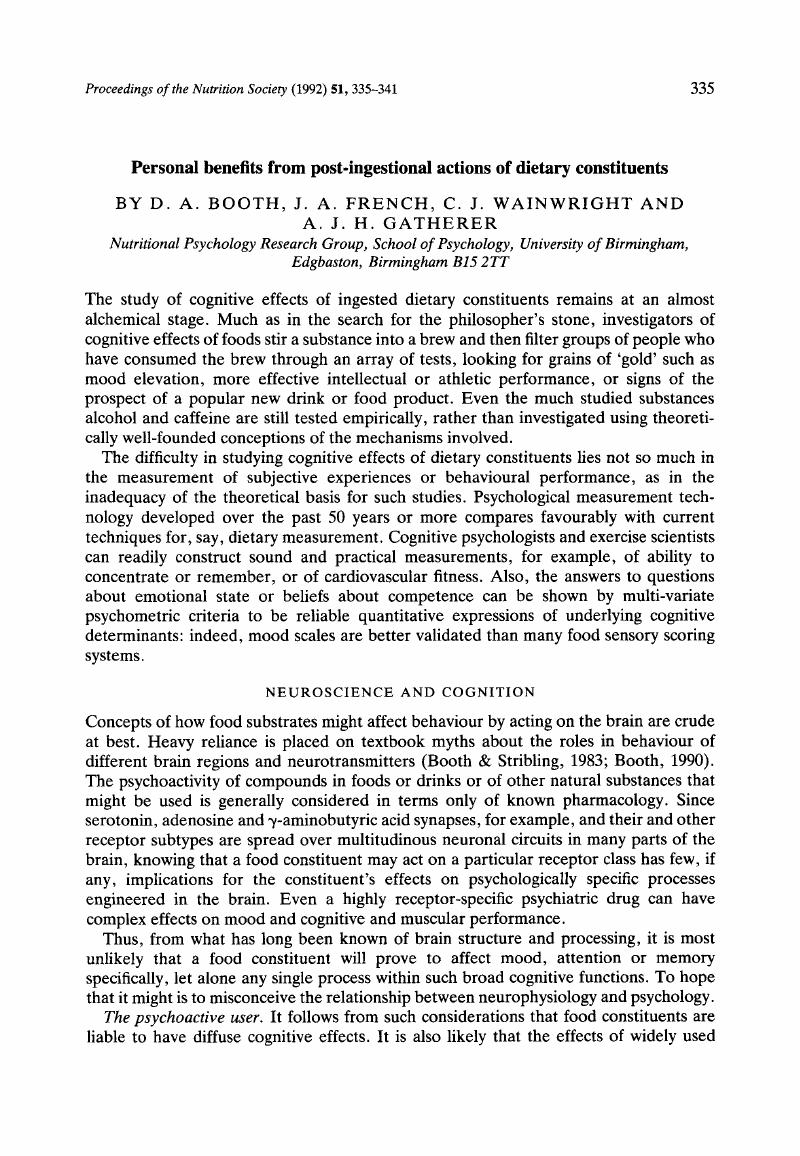Crossref Citations
This article has been cited by the following publications. This list is generated based on data provided by Crossref.
French, Jennifer A.
Blair, Alan J.
and
Booth, David A.
1994.
Social Situation and Emotional State in Eating and Drinking.
British Food Journal,
Vol. 96,
Issue. 1,
p.
23.
Rogers, P. J.
1995.
Food, Mood and Appetite.
Nutrition Research Reviews,
Vol. 8,
Issue. 1,
p.
243.
Rogers, P. J.
Richardson, N. J.
and
Elliman, N. A.
1995.
Overnight caffeine abstinence and negative reinforcement of preference for caffeine-containing drinks.
Psychopharmacology,
Vol. 120,
Issue. 4,
p.
457.
Nehlig, Astrid
1999.
Are we dependent upon coffee and caffeine? A review on human and animal data.
Neuroscience & Biobehavioral Reviews,
Vol. 23,
Issue. 4,
p.
563.
Waldvogel, Herman Hans
2001.
Analgetika Antinozizeptiva Adjuvanzien.
p.
575.
Goldstein, Jerome
2001.
Caffeine as an analgesic adjuvant.
InflammoPharmacology,
Vol. 9,
Issue. 1-2,
p.
51.
Reid, Marie
Bunting, Jane
and
Hammersley, Richard
2005.
Relationships between the Food Expectancy Questionnaire (FEQ) and the Food Frequency Questionnaire (FFQ).
Appetite,
Vol. 45,
Issue. 2,
p.
127.
Rankin, Paula
Lawlor, Michael J.
Hills, Frank A.
Bell, Phillip G.
Stevenson, Emma J.
and
Cockburn, Emma
2018.
The effect of milk on recovery from repeat-sprint cycling in female team-sport athletes.
Applied Physiology, Nutrition, and Metabolism,
Vol. 43,
Issue. 2,
p.
113.



